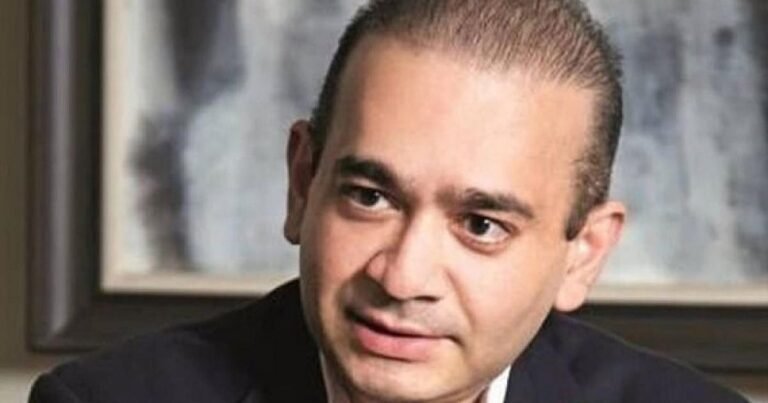
Contents
Nirav Modi Extradition Case: “Sensational Developments” Expected in UK Court Hearing
Nirav Modi, the fugitive Indian diamond merchant, has hinted at “sensational developments” in his extradition case, which is set to be heard in a UK court. Modi, who is wanted in India for his alleged role in a $2 billion bank fraud, has expressed hope for bail and has suggested that new evidence will be presented in the case. The developments come as Modi’s lawyers prepare to argue against his extradition to India, citing concerns about his human rights and the fairness of the Indian judicial system.
The Nirav Modi extradition case has been ongoing for several years, with the Indian government seeking to bring the fugitive diamond merchant back to the country to face trial. Modi, who is currently living in the UK, has been accused of perpetrating a $2 billion bank fraud, which is one of the largest in Indian history. The case has sparked widespread outrage and has led to calls for greater scrutiny of the Indian banking system. As the extradition hearing approaches, Modi’s lawyers have hinted that new evidence will be presented, which could potentially impact the outcome of the case.
Background of the Case
Nirav Modi, who is the founder of the diamond company Firestar International, is accused of using fake bank guarantees to secure loans from the Punjab National Bank (PNB). The loans were allegedly used to fund his business empire, which included a number of high-end jewelry stores around the world. However, when the loans were not repaid, the PNB discovered that the bank guarantees were fake, leading to a massive scandal. The Indian government has since been seeking to extradite Modi, who fled the country in 2018.
Modi’s Extradition Hearing
Modi’s extradition hearing is set to take place in a UK court, where his lawyers will argue against his extradition to India. The lawyers have cited concerns about Modi’s human rights and the fairness of the Indian judicial system, arguing that he will not receive a fair trial in India. However, the Indian government has argued that Modi should be extradited to face trial, citing the seriousness of the allegations against him. As the hearing approaches, Modi’s lawyers have hinted that new evidence will be presented, which could potentially impact the outcome of the case.
Some key highlights of the case include:
* Nirav Modi is accused of perpetrating a $2 billion bank fraud, which is one of the largest in Indian history.
* Modi’s lawyers have cited concerns about his human rights and the fairness of the Indian judicial system.
* The Indian government has argued that Modi should be extradited to face trial, citing the seriousness of the allegations against him.
* New evidence is expected to be presented in the case, which could potentially impact the outcome of the extradition hearing.
Implications of the Case
The Nirav Modi extradition case has significant implications for the Indian banking system and the country’s efforts to crack down on corruption. If Modi is extradited to India and found guilty, it could send a strong message that the Indian government is serious about tackling corruption and ensuring that those who perpetrate financial crimes are held accountable. However, if Modi is not extradited, it could raise questions about the effectiveness of the Indian judicial system and the ability of the government to bring fugitives to justice.
As the case continues to unfold, it is likely that there will be significant media attention and public interest. The Indian government has faced criticism in the past for its handling of high-profile corruption cases, and the Modi case will be seen as a test of its commitment to tackling corruption and ensuring that justice is served.
Global Ramifications
The Nirav Modi extradition case also has global ramifications, as it highlights the challenges of tackling cross-border financial crime. The case has sparked calls for greater international cooperation and information sharing to prevent fugitives from evading justice. It has also raised questions about the role of Western countries in providing a safe haven for fugitives and the need for greater scrutiny of financial transactions to prevent money laundering and other financial crimes.
Some relevant quotes from experts and officials include:
* “The Nirav Modi case is a test of the Indian government’s commitment to tackling corruption and ensuring that justice is served.” – Anonymous official
* “The case highlights the challenges of tackling cross-border financial crime and the need for greater international cooperation and information sharing.” – Expert
* “The extradition hearing will be a significant moment in the case, and it will be important to see how the UK court rules on the matter.” – Analyst
Conclusion
The Nirav Modi extradition case is a complex and high-profile case that has significant implications for the Indian banking system and the country’s efforts to crack down on corruption. As the extradition hearing approaches, it is likely that there will be significant media attention and public interest. The case highlights the challenges of tackling cross-border financial crime and the need for greater international cooperation and information sharing. It also raises questions about the role of Western countries in providing a safe haven for fugitives and the need for greater scrutiny of financial transactions to prevent money laundering and other financial crimes.
Keywords: Nirav Modi, extradition, India, UK, bank fraud, corruption, financial crime, cross-border, international cooperation, money laundering.
Hashtags: #NiravModi #Extradition #India #UK #BankFraud #Corruption #FinancialCrime #CrossBorder #InternationalCooperation #MoneyLaundering.
Source link